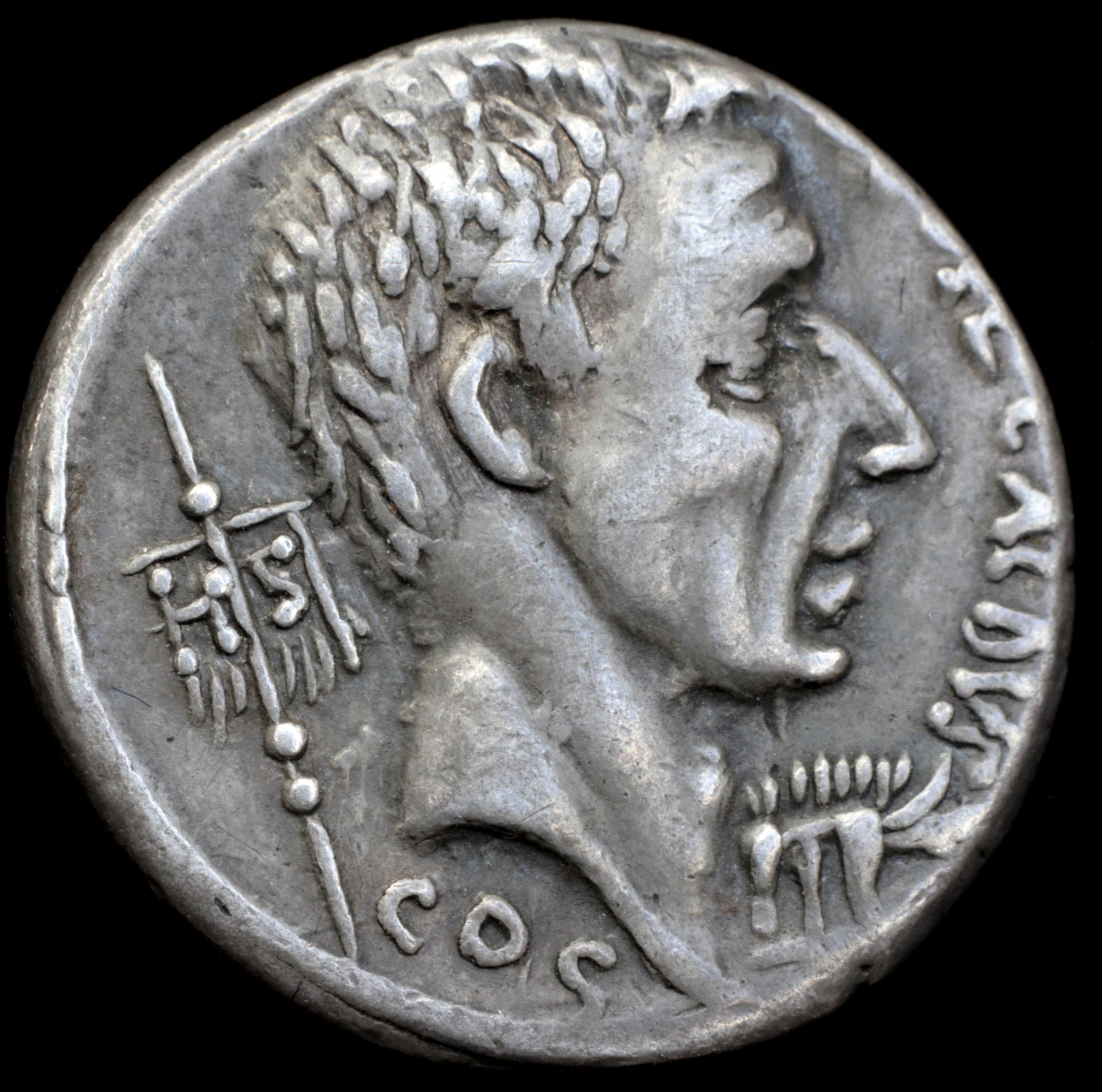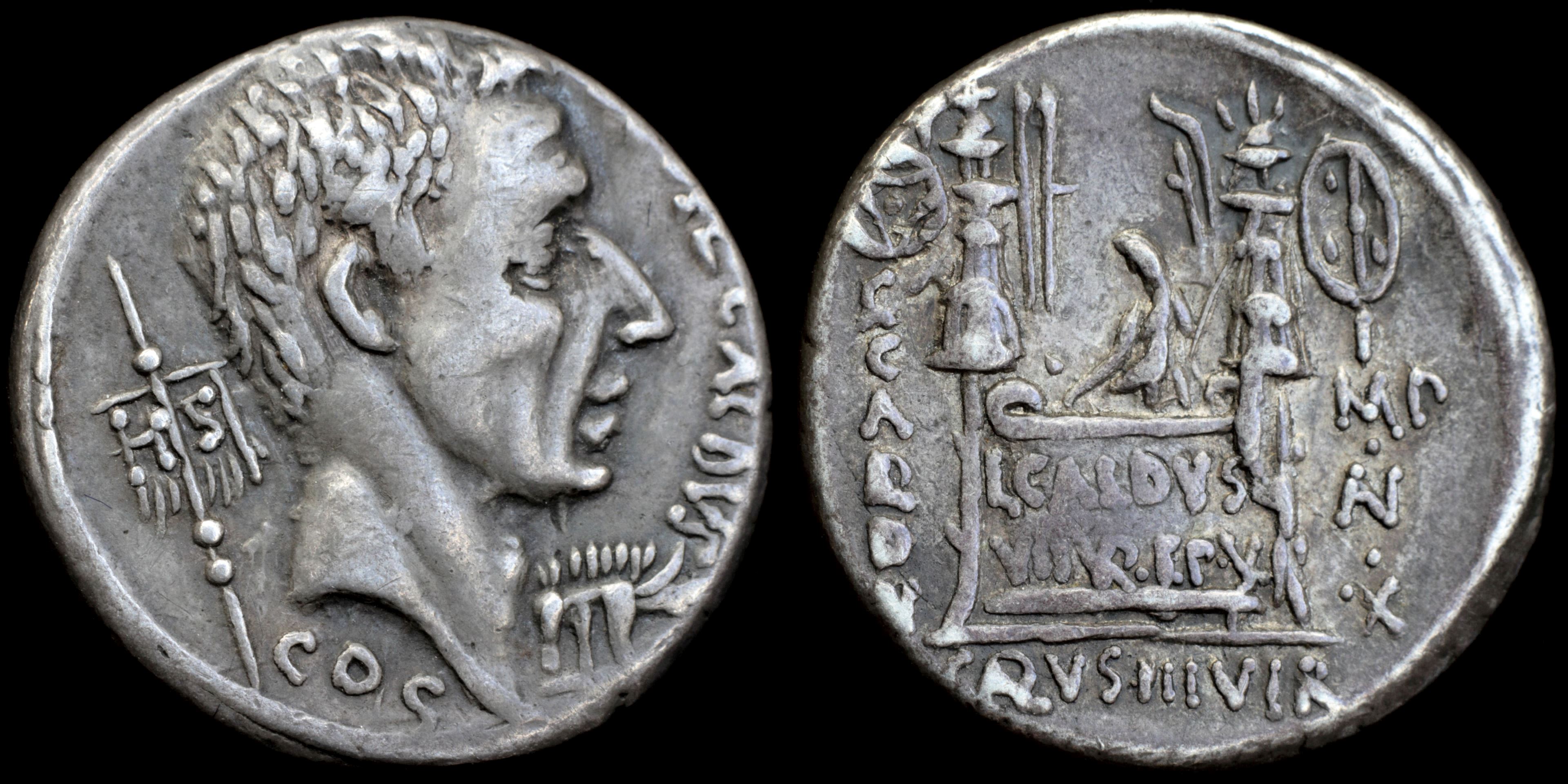Caius Coelius Caldus was one of the moneyers for the year 51 BC.
Coelius Caldus was the grandson of the moneyer from 104 BC, and struck coins bearing his portrait, and honoured two other ancestors with the same name.
Gens Caelia or Coelia was a plebeian family at Rome. In manuscripts the nomen is usually written Caelius, while on coins it generally occurs in the form of Coelius or Coilius.
Coelius Caldus was the grandson of the moneyer from 104 BC, and struck coins bearing his portrait, and honoured two other ancestors with the same name.
Gens Caelia or Coelia was a plebeian family at Rome. In manuscripts the nomen is usually written Caelius, while on coins it generally occurs in the form of Coelius or Coilius.


Obverse: head of Coelius Caldus (moneyer's grandfather) right; standard inscribed HIS (Hispania) behind, standard in the form of a boar (emblem of of Clunia, Hispania) in front, C·COEL·CALDVS / COS
Reverse: statue of god seated left between two trophies of arms, all on a high lectisternium with front inscribed L·CALDVS / VII·(VIR)·EP(VL) (Lucius Caldus Septemvir Epulo), C·CALDVS on left, IMP·(AV)·X (Imperator Augur Decemvir) on right, C(ALD)VS III VIR below
Diameter:
17 mm
Die Orientation: -
Weight: 3.9 g
Die Orientation: -
Weight: 3.9 g
Scarce. Coin commemorates three moneyer's ancestors. The first, moneyer's grandfather C. Coelius Caldus, was consul in 94 BC. In 107 BC, he was elected tribune of the plebs and passed a lex tabellaria, requiring a secret ballot to determine the verdict in cases of high treason. He was a praetor in 100 or 99 BC, and proconsul of Hispania Citerior the following year. This is represented by standard on the obverse along with emblem of the conquered town Clunia. He was also moneyer in 104 BC.
The second, L. Coelius Caldus, was member of septemviri epulones who prepared lectisternium - propitiatory ceremony, consisting of a meal offered to gods and goddesses (depicted on the reverse). He was responsible for sacrificial feast (epulare sacrificium) during Plebeian games (Ludi Plebeii) in Rome.
The third, C. Coelius Caldus, was augur, member of decemviri sacris faciundis, and governor who gained the title Imperator. The trophies on the reverse commemorates his military campains.
Crawford 437/2a, Sydenham 894, RSC I Coelia 7, BMCRR II 3837, SRCV I 404
